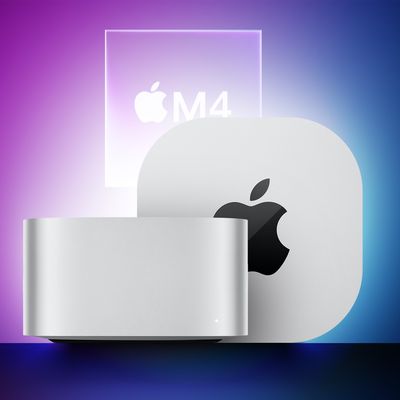Apple Ramping Up M1 Production as New 12.9-inch iPad Pro Expected to Reach Five Million Shipments in 2021
Apple is seemingly expecting high demand for its new M1-powered iPad Pro as the company has asked its main chip supplier, TSMC, to ramp up production of the chip for its new iPad, and newer Mac computers, according to industry sources cited by DigiTimes.

Earlier this week, Apple unveiled a brand new 11 and 12.9-inch iPad Pro powered by the M1 Apple silicon chip, the same chip powering the newly announced 24-inch iMac, and previously released Mac mini, MacBook Air, and MacBook Pro.
The M1 chip first started shipping in November, and amid an ongoing global chip shortage, demand for the chip is even more pronounced thanks to the new iPad Pro. DigiTimes reports that TSMC had a previous goal of 120,000 chip wafers per month for the second half of the year. Thanks to a strong push from Apple, TSMC now has its eyes set on 140,000 to 150,000 monthly chip waters from the second to the fourth quarter of the year.
Even though the new iPad Pro and 24-inch iMac were announced this week, they won't begin shipping until the second half of May. The significant delay between announcement and shipments is likely due to strain put on Apple's suppliers.
Research cited by another DigiTimes report today suggests that the new higher-end 12.9-inch iPad Pro which features a new Liquid Retina XDR Display, will reach 5 million shipments this year. The new iPad Pro and 24-inch iMac will be available for pre-order starting Friday, April 30.
Popular Stories
Leaker Sonny Dickson is back today with a new dummy unit image showing all four iPhone 16 Pro color variants, including the rose gold or "bronze" unit that replaces Blue Titanium in the existing iPhone 15 Pro models. The iPhone 16 Pro models are expected to come in black, white or silver, gray or "Natural Titanium," and a rose or rose gold color replacing Blue Titanium, according to Apple...
Multiple rumors have suggested that the iPhone 16 models are going to have an all-new button that's designed to make it easier to capture photos when the devices are held in landscape mode. Apple calls the button the Capture Button internally, and it is going to be one of the most advanced buttons that's been introduced to date with support for multiple gestures and the ability to respond to ...
Apple typically releases its new iPhone series in the fall, and a possible September 10 announcement date has been floated this year, which means we are just one month away from the launch of the iPhone 16. Like the iPhone 15 series, this year's lineup is expected to stick with four models – iPhone 16, iPhone 16 Plus, iPhone 16 Pro, and iPhone 16 Pro Max – although there are plenty of design...
Apple's iPhone 16 series is expected to debut in September 2024. This release follows Apple's trend of introducing new iPhone models annually in the fall. While the exact date has yet to be officially confirmed, the day of Tuesday, September 10 has been rumored as a possible announcement date, and September has traditionally been the month when Apple unveils its latest smartphone innovations. ...
Apple is moving forward with its project to develop a tabletop robotic device, according to Bloomberg's Mark Gurman. Subscribe to the MacRumors YouTube channel for more videos. The device would feature a large iPad-like display mounted on a "thin robotic arm" that would allow the display to tilt and up and down and rotate a full 360º, and it would serve as a "smart home command center," a...
It's almost September, but Apple still has multiple new product launches planned for 2024. New iPhone 16 models and Apple Watches are coming in September, and we're also going to get at least three Mac updates with M4 chips this year, according to rumors. Here's what's on the horizon. MacBook Pro Apple plans to refresh both the 14-inch and 16-inch MacBook Pro models, adding M4 chips. The ...
T-Mobile was fined $60 million by the Committee on Foreign Investment in the US (CFIUS) for negligence surrounding data breaches, reports Reuters. CFIUS penalized T-Mobile for failing to prevent or disclose unauthorized access to sensitive customer data. When T-Mobile merged with Sprint, it signed a national security agreement with CFIUS, which is what led to the fine earlier this year....





















